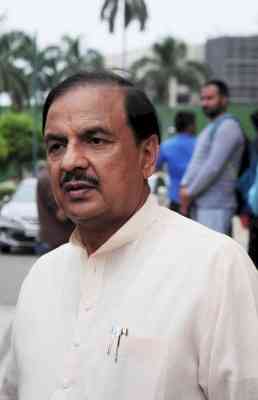Bangladesh urged to withdraw draft law on NGOs
New York, July 6 (IANS) The Bangladesh government has proposed a law that would impose draconian restrictions on already beleaguered NGOs, Human Rights Watch said Sunday. Bangladesh's donors should publicly express concerns about restrictions...

New York, July 6 (IANS) The Bangladesh government has proposed a law that would impose draconian restrictions on already beleaguered NGOs, Human Rights Watch said Sunday.
Bangladesh's donors should publicly express concerns about restrictions that are aimed at silencing government critics, the US rights body said.
The draft law is to be presented to the parliamentary standing committee for consideration.
The Foreign Donations (Voluntary Activities) Regulation Act, 2014, would regulate operations and funding for any group with foreign funding as well as Bangladesh offices of foreign and international organizations.
The NGO Affairs Bureau in the prime minister's office would have approval authority over foreign-funded projects.
It would have the authority to "inspect, monitor and assess the activities" of groups and individuals and to close groups and cancel their registration if it sees fit.
"The draft law can easily be misused to limit perfectly legitimate activities of NGOs and to attack critics," said Phil Robertson at Human Rights Watch.
"Corruption is flourishing in the government and the private sector, so it is more than odd that the government is spending its time passing tough laws that target NGOs."
The law should be withdrawn, Human Rights Watch said.
But if it moves through parliament, the standing committee needs to amend the most problematic provisions so groups won't be starved of funding and subjected to arbitrary restrictions.
The draft law gives line ministries the authority to require revision of nongovernmental organisations' projects or to order them cancelled.
It also requires prior approval before anyone involved in voluntary activities travels out of the country for purposes connected with their work on the project.
That provision is a potential violation of article 12 of the International Covenant on Civil and Political Rights, which gives anyone the freedom to leave any country, including their own, Human Rights Watch said.

 cityairnews
cityairnews 













